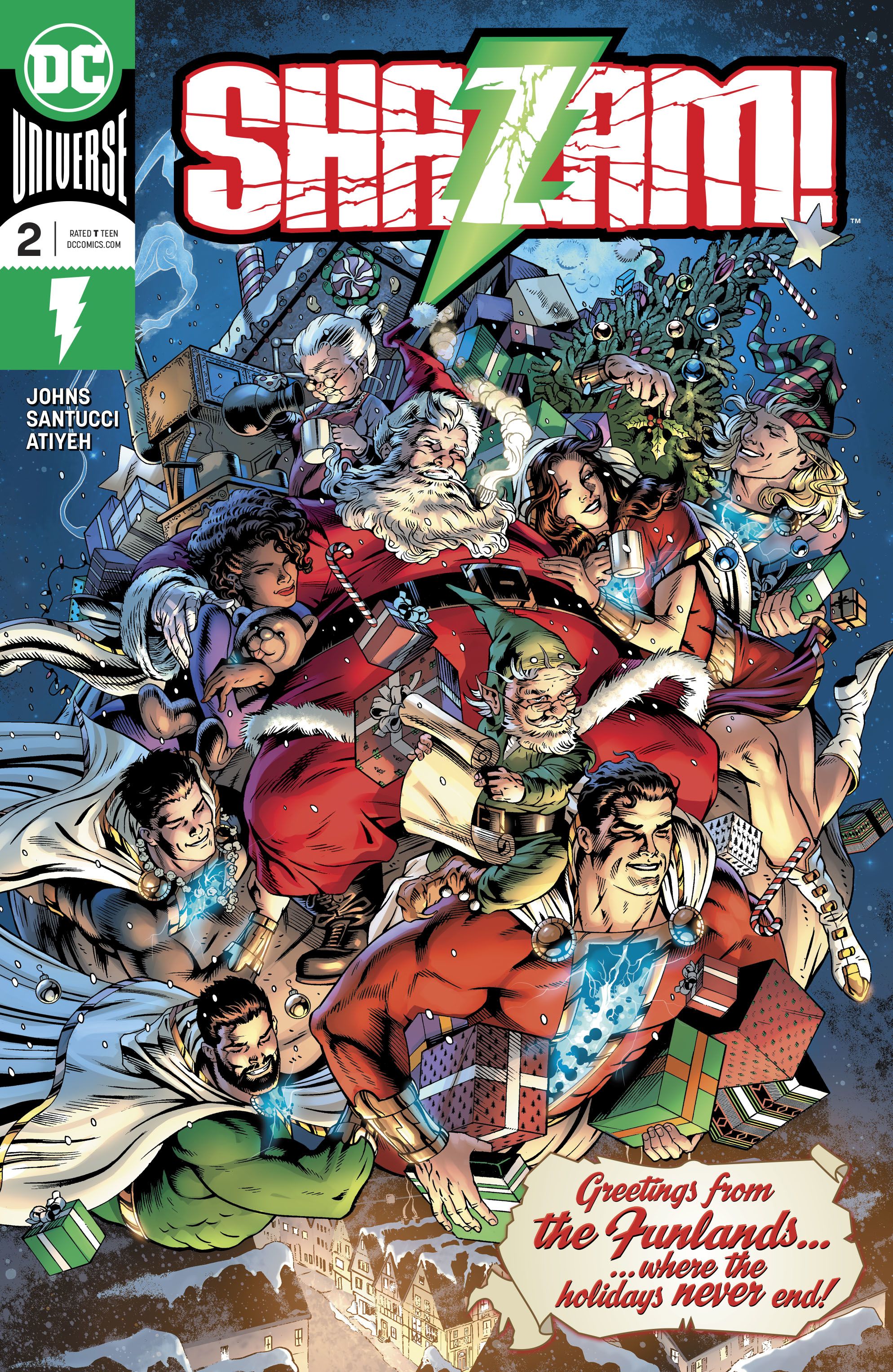REVIEW: Shazam! #2
- WRITER
- Geoff Johns
- Artist
- Marco Santucci
- Letterer
- Rob Leigh
- Cover Artist
- Alex Sinclair, Dale Eaglesham
- Publisher
- DC Comics
- Price
- 3.99
- Release Date
- 2019-01-23
- Colorist
- Mike Atiyeh
Shazam #2 opens with a melodramatic moment involving a man claiming to be Billy Batson's biological fathers and the young boy's adoptive parents. The moral dilemma Victor and Rosa face regarding the future of the son they've adopted is a topic which can be rather tricky to tackle in a comic book starring a character who is the epitome of flashy super hero fun. DC Comics has plenty of heroes who come from tumultuous parenting situations: Batman is an orphan, Superman has adoptive parents, and Wonder Woman's lineage isn't exactly conventional. But Billy Batson, along with his adoptive siblings, don't dwell on their circumstances being what some folks consider outside the normal family unit. Sure, it occurs as a topic of discussion, but it is never really seen as an emotional stumbling block.
The serious and grounded tone of the cold open quickly slides away when we check in on what Billy, Freddy and the rest of the kids are up to, which is anything but worrying about paternity claims and the ramifications they may hold. At the Rock of Eternity, Billy and co. are debated as to where they should travel within the Seven Magiclands. The discussion which plays out regarding where they should go certainly has some weight to it, but ultimately it boils down to a bunch of adolescents debating the merits of the various Lands based solely on their names. It's superficial, yes, but it's also something most of us, especially children, would take in consideration. Who really wants to go to The Monsterlands, anyway?
RELATED: Shazam! Film's Funko Pop! Figures Spoil a Major Plot Point
Geoff Johns is a writer who one was on the driving forces for me to get back into buying monthly comics in the early aughts. Shazam! #2 is a prime example of why. When he's firing on cylinders, Johns is able to capture a sense of wonder in any situation. There is almost an ET-era Spielbergian quality to his work. There's something emotional playing out beyond the stage he's set, but the real magic is in his young characters' experiencing their discovery. The world at large matters not. This isn't so much of a matter of escapism in the sense of distraction, it's just a way to convey the innocence of youth (such as it is) and the feeling of believing what you're doing is the most important thing on the entire planet. There's purpose, and no matter how trivial or fantastical that purpose might be, its importance does not waver.
Johns working on a character like Shazam!, someone who maintains a child-like wonder in virtually any situation, without diving into the cultural zeitgeist to fish for lingo and the current era's colloquialisms, gives this issue a feeling of timelessness. The manner in which the kids in this issue speak has a naturalistic element to it that could have been ripped from the pages of a Silver Age book, if Johns' dialogue was a touch less nuanced.
RELATED: Shazam! Teaser Hides an Intriguing Clue About Its Villain in Plain Sight
The workmanship style of the artwork helps elevate this attribute, and I love Marco Santucci's art for the simple fact that it is remarkably unremarkable. I don't mean that as a slight against his work, at all. The classic style he employs is welcomed. While it doesn't exactly hearken back to the comics of yesteryear, it does feel reminiscent of works from the late '90s and early aughts, when comic books began to have a more cinematic quality to them, specifically in superhero titles like The Ultimates, The Authority, and Johns' own JSA and Green Lantern runs. But while those aforementioned titles were more about superhero deconstruction (or reconstruction), Shazam! eschews dire, world-ending circumstances and mopey meditations on what the cost of being a superhero in exchange for rollicking tales of adventure.
As weird as it may sound, the idea of fun comics is subjective. When some disillusioned comic fans claim they just their comics to be fun like they were in the '90s, they may be referring to the over-the-top action and highly-stylized art. But Shazam!'s sense of fun is from a place of wonder and exploration. Very rarely does a comic bring me back to the years of not worrying about mortgages or my own kids or paychecks or any of the other trappings that come along with being adult like this does.

